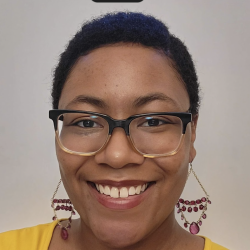
Expanding our Cultural Lens: Cards for Humanity Activity
Have you ever walked into a setting where you felt that no one can relate to you? What was your emotional experience? How did you feel? Did you feel more connected or less connected with these individuals? Have you ever wanted to feel more connected to someone from a different background or culture but did not know where to begin in bridging that gap? One of the things that hold us back from expanding our cultural lens is that we fear that people who do not share common characteristics will not relate or be able to understand us. This barrier can prevent us from deepening relationships or creating new ones. The best way to get to know someone is to ask. We limit ourselves for the fear that our curiosity might not be received well. This can lead to many misconceptions about certain individuals.
A good way to expand our cultural lens is to simply ask. The best way to learn about someone is to allow them to define themselves instead of assuming. The activity, Expanding our Cultural Lens: Cards for Humanity is designed to allow you to get to know each other in a fun, creative way. Cards for Humanity will help you create conversation around people and their culture, which will allow you to build a stronger connection and you might even discover that you are more alike than you thought.
Get a regular deck of cards and have each card represent a topic. Each player would randomly draw a card. Below, you will find different prompts for questions that can be asked but being curious and coming up with your own questions for each topic is strongly encouraged:
A- Values (What are some of your core family values? How were these values taught? How were these values practiced?)
2- stereotypes (What are common misconceptions about your culture? Are there any positive stereotypes that you embrace? How do stereotypes affect your life?)
3- beauty concepts (What body type is embraced in your culture? What are some unusual beauty traditions? What is your typical beauty routine?)
4- language (What language do you speak? Are there different dialects, do you wish to speak another language? )
5- Family/community (Do you come from an individualistic society? What is your sense of community? Did you come from a small or big family)
6- taboo (What is seen as taboo in the culture? What is a common practice that may be seen as taboo for other cultures?)
7- religion (What is your religion? How is it practiced? How does religion affect your life now? Are there other religions commonly practiced in your culture?)
8- Justice/discipline (Does your family believe in corporal discipline? Would you modify any of the discipline practices that you grew up with? How do you think the justice system affects your culture?)
9- traditions/celebrations (What are some family traditions? What celebrations are specific to your culture? Do you practice any of these traditions currently?)
10-food (What is the common diet of your culture? What foods are restricted? What are some traditional foods?)
J- sex (How does your culture view sex? Was sex talked about in your home? What was the message regarding sex that your learned from your community?)
Q- dating and mating concepts (At what age were you allowed to date, what standards were you taught about dating, what would you change about the dating concepts)
K- gender roles - (How was gender represented in the home, What is your gender identity, was this identity accepted or rejected in your household, how do you view gender roles)
Lay the cards face down and have one person pick a card from the deck. Based upon the card picked by one individual, each member of the game will ask a question that corresponds with the topic assigned to the card to the individual that picked the card. You repeat it until the whole deck of cards are gone. If you happen to get a card that you previously picked up, you can pass it to someone that has not gotten that card and you are able to pick another card.
Here are a few rules: Each person needs to listen and wait until the person has completely responded before asking any follow up questions or commenting on what they said. If someone is stuck on an answer, give the person time to respond. This will allow the person to collect their thoughts and answer as authentically as possible. Also, take what the other person says for face value. Do not challenge their way of thinking or how they interpret certain experiences. Instead, try to empathize with them and appreciate their point of view regarding certain topics. Once you are done with the game, process what the experience was like for each individual. Some questions to keep in mind are:
- What did we have in common?
- What surprised you about the other person?
- Did your point of view about that culture change or remain the same?
- How can you use this response to determine how you interact with others?
- Do you feel more connected or less connected to the person?
- Did you feel heard?
- Was your response respected?
- How did it feel for you to answer these questions?
- Were any questions offensive, if so what are better ways to ask that question?
- Was it difficult to listen, then respond?
- After doing this activity, how comfortable are you to try it again?
You can’t judge a book by its cover. Let each person be the author of their own story and what better way to get the narrative than by asking them to tell it to you. It is important to remember that each response represents that individual. Cards for Humanity is made to encourage you to be more curious and not limit yourself into thinking that the answers provided depict the whole culture. Sharpening our cultural lense can lead to a better understanding of others and help to strengthen our social circles. If you would like help in exploring how to do this or if you have tried this on your own and it led to an uncomfortable experience and you want some guidance, set up an appointment here at The Center for Growth and we can help you strengthen this skill.






















